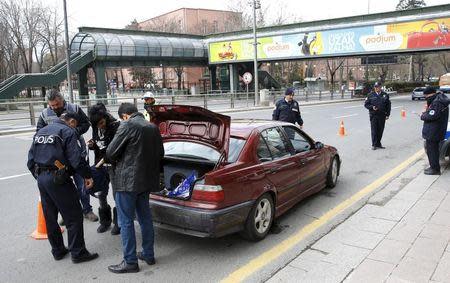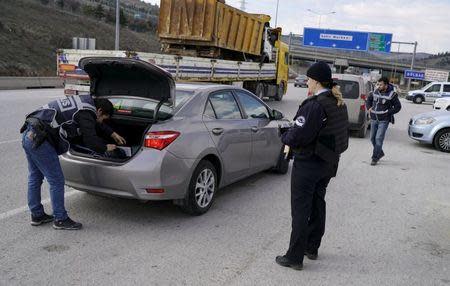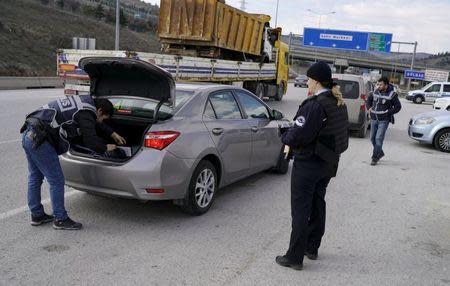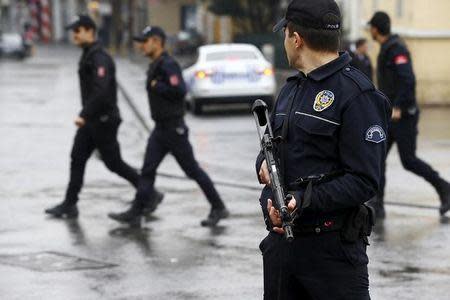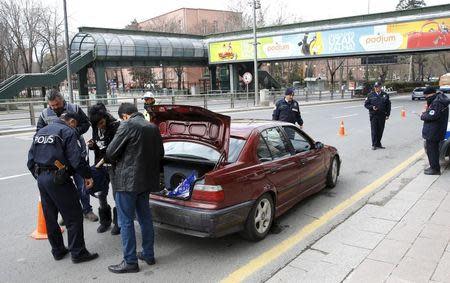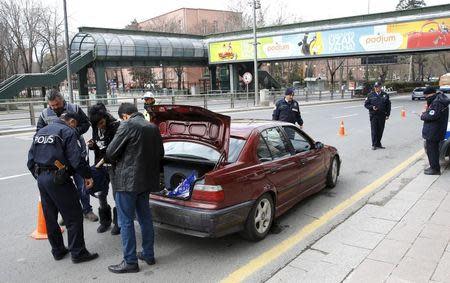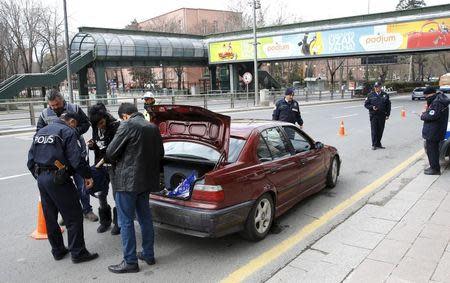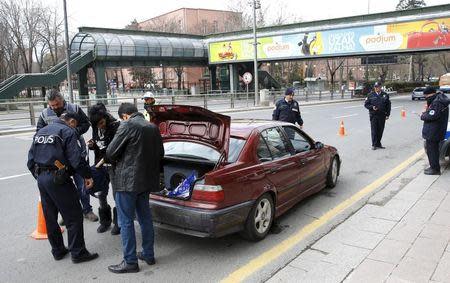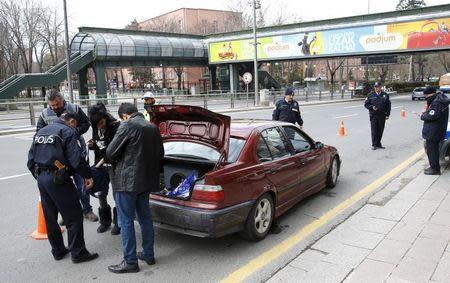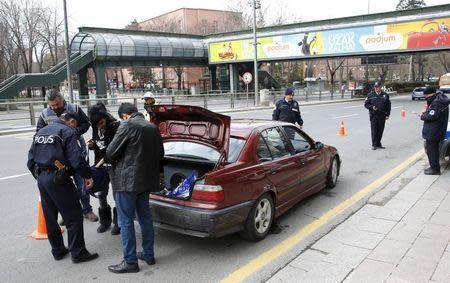Turkey says Istanbul suicide bomber was member of Islamic State
By Ece Toksabay and Ayla Jean Yackley
ISTANBUL (Reuters) - A Turkish member of the Islamic State militant group was responsible for Saturday's suicide bombing in Istanbul that killed three Israelis and an Iranian, Turkey's interior minister said.
The attack in Istiklal Street, Istanbul's most popular shopping distict, is the fourth such bombing in Turkey this year and the second one by Islamist militants. In January a suicide bomber blew himself up in Istanbul's historic heart, killing 12 German tourists.
NATO-member Turkey is on heightened alert after the bombings, which have killed more than 80 people. A soccer match between Istanbul rivals Fenerbahce and Galatasaray was cancelled on Sunday and the stadium evacuated on what appeared to be a security threat.
Interior Minister Efkan Ala identified Saturday's bomber as a man from a southern Turkish province, adding that five people had been detained so far in connection with the blast.
"We have determined that Mehmet Ozturk, born in 1992 in Gaziantep, has carried out the heinous attack on Saturday in Istanbul. It has been established that he is a member of Daesh," Ala told a news conference broadcast live on television, using an Arabic acronym for Islamic State.
Israel has confirmed that three of its citizens died in the blast. Two of them held dual citizenship with the United States. An Iranian was also killed, Turkish officials have said.
Israeli Prime Minister Benjamin Netanyahu has said Israel is trying to determine whether its citizens were deliberately targeted. Eleven of the 36 wounded were Israelis.
In his first public appearance since the bombing, President Tayyip Erdogan said Turkey would not give in to militants.
"We will never surrender to the agenda of terror. We will defeat the terrorist organisations and the powers behind them by looking after the unity of our nation," he said.
SPATE OF BOMBINGS
As part of a U.S.-led coalition, Turkey is fighting Islamic State in neighbouring Syria and Iraq. It is also battling Kurdish militants in its southeast, where a 2-1/2-year ceasefire collapsed last July, triggering the worst violence since the 1990s.
The spate of bombings has raised questions about its ability to protect itself from a spillover of both the Syria and Kurdish conflicts.
An offshoot of the militant Kurdistan Workers Party (PKK) claimed responsibility for two recent car bomb attacks in the capital Ankara that killed a total of 66 people. Turkey sees the Kurdish insurgency as fuelled by the territorial gains of Kurdish militia fighters in northern Syria.
Police were questioning the father and brother of the alleged bomber Ozturk and had determined his identity by checking a DNA sample from the blast scene against one taken from his father, security sources said.
Ozturk's family reported him missing after he went to Istanbul in 2013, the security sources said.
Police were on also on alert due to concerns about potential clashes between security forces and Kurdish militants during a spring festival this weekend that is widely celebrated by Kurds.
The United States and some European embassies had warned their citizens to be vigilant before the Newroz celebrations.
Interior Minister Ala said authorities had put 200,000 members of the police and gendarmerie on duty, some of whom would set up checkpoints. Hundreds of bomb control devices had also been dispatched.
But he acknowledged the difficulty of catching lone suicide bombers.
"We have to take all measures to prevent any terrorist acts," he said. "But sometimes there are suicide bombings that are hard to prevent."
'WE ARE HERE'
Streets across the city, usually bustling with traffic and pedestrians on Sundays, were eerily quiet apart from the sound of police helicopters buzzing overhead.
Although Istiklal was quiet earlier in the day it was no longer deserted by afternoon. Crowds gathered at a makeshift memorial at the site of the bombing, where mourners laid carnations next to handwritten signs that read: "We are here. We are not afraid."
Ahmet Merkit, who was carrying a Turkish flag near the site of the blast, described the bombing as an attack against all Turks. "Those who did this cannot call themselves Muslims. They have no religion," he said. "We must remain a democratic society. We are a nation that has never surrendered, we will not surrender now to terrorism."
Dutch Consul General Robert Schuddeboom, who had come to lay flowers at the site, said there could be more such attacks.
"With terrorism, even the best of security agencies and the best of information cannot prevent it from happening... The general analysis is that we can expect more attacks," he said.
Social media sites such as Twitter and Facebook were not readily accessible, local users reported. Authorities have blocked access after past bombings, usually because graphic images have been shared online.
It was not immediately clear whether Germany, which closed its diplomatic missions and German schools last week citing a security threat, would open them on Monday. A foreign ministry spokeswoman said the decision would be made at short notice.
(Additional reporting by Humeyra Pamuk, Murad Sezer, Osman Orsal and Can Sezer in Turkey; Ari Rabinovitch in Jerusalem and Hans-Edzard Busemann in Berlin; Writing by David Dolan; Editing by Mark Trevelyan)


